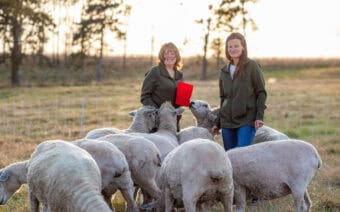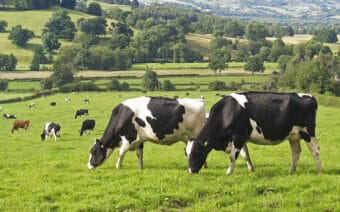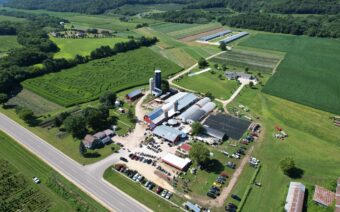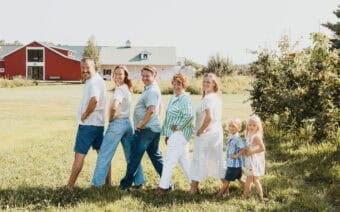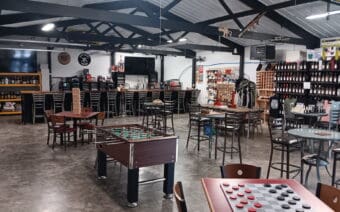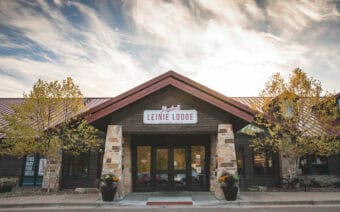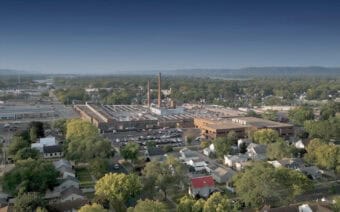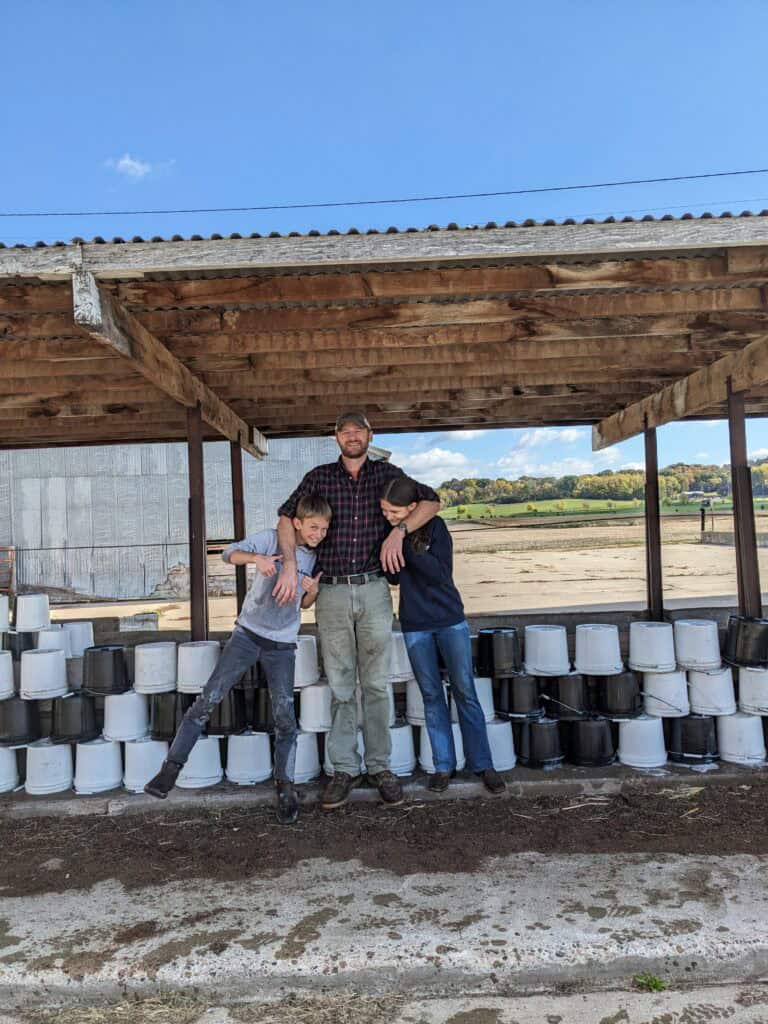
July 21, 2025
ARCADIA – Lucky Frank Farms’ story, Owner Jonas Schank said, started in 2013 when he and his wife decided to order their first two three-pound packages of honey bees.
Schank said they not only fell in love with the bees, but the honey they produced was the best they had ever tasted.
Today, he said Lucky Frank Farms – located at W26999 Gaveny Road in Arcadia – serves as a one-stop shop for all things honey, which, in addition to pure unfiltered bottled honey, includes candles and beeswax products.
Schank said the nectar-producing plants the bees visit are Basswood and locust trees, as well as clover, alfalfa, aster and goldenrod.
Becoming Lucky Frank Farms
When they set out on their beekeeping adventure in 2013, Schank said the original plan was to create enough honey that their family would never run out of it.
But, as the farm grew, he said, so did the supply of honey.
Eventually, Schank said their kids couldn’t eat enough of it, and they decided to start selling it – and Lucky Frank Farms was born.
The business’s name, he said, was inspired by their then-five-year-old daughter, who said, “The cat’s name is Lucky, and the dog’s name is Frank – Lucky Frank’s sounds pretty good.”
Schank said they were first inspired to take up bee farming by watching YouTube videos.
Spending the next year reading, watching videos and doing research, trying to figure out how to do it, Schank said they eventually decided to take the leap, and the rest is history.
Twelve years later, though excited at how far they’ve come, he said “it’s a lot more involved than I initially thought it would be.”
“There’s a lot of work to do, but I really enjoy it,” he said. “I really enjoy the bees a lot, too. Plus, it’s something the family enjoys, too.”
Schank said the entire family embraced the hives early on, and the kids – who were young when Lucky Frank Farms started – are now teenagers.
“The kids have really taken to it,” he said. “They help a lot. My wife helps with the bottling, and more of the later process stuff. We’re doing all this to build a business worth coming home for.”
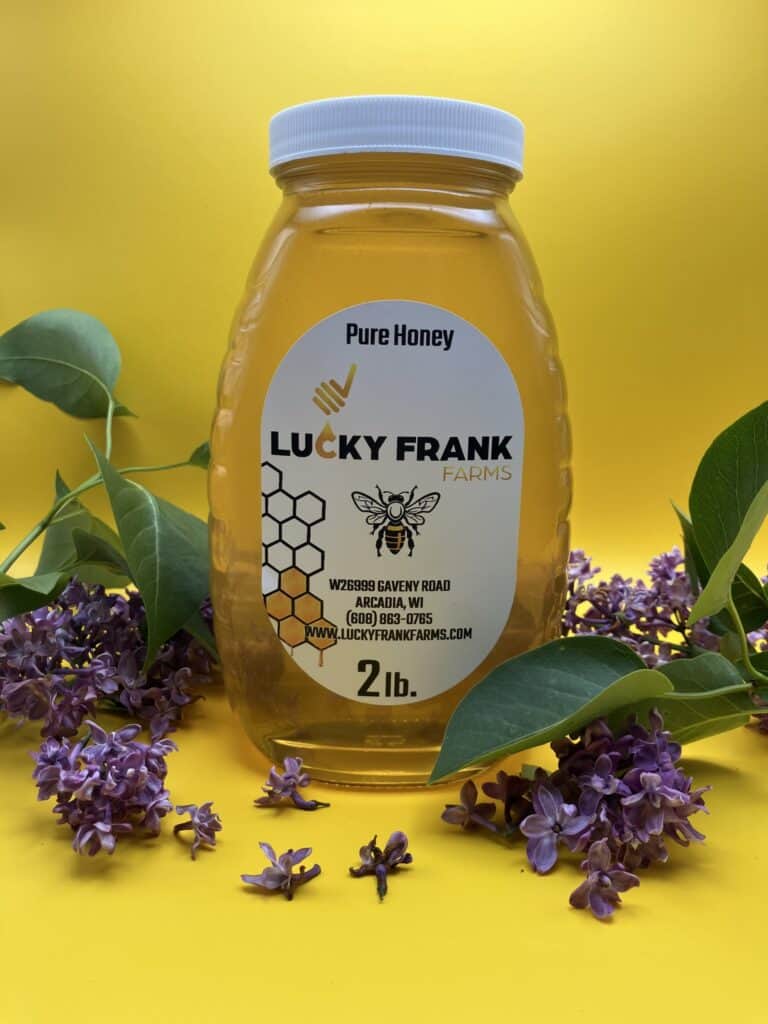
Though the bees do a lot of the “grunt work” in terms of honey production, Schank said bee farmers have a lot of tasks as well that can be time consuming – such as making sure the bees are healthy and keeping the mites in check.
Extracting the honey, he said, is also time consuming, but generally only happens three to four times a year – which is good, he said, considering they’ve upped their hive numbers to 300 in the last 12 years.
Keeping bees healthy
Like any farmer, Schank said taking care of your animals – or in their case, insects – is a task they take great pride in.
As a bee farmer, he said that includes making sure they have the food and resources they need and, as previously mentioned, treating the hives for mites – which they do between three to five times a year.
Schank said bees can get viruses from the mites, so ensuring the mites are kept out is key.
“Between mites and foraging for food, we have to be mindful to supplement-feed them when things get tight, regardless of time of year,” he said. “So, in early spring, before the maple blooms, we try and supplement some to get them growing. It’s a mutual benefit, really.”
Taking care of bees, Schank said, is a year-round endeavor – with preparation happening in six-month cycles.
In summer, he said bees generally have no issues finding food, but it’s important for bee farmers to keep enough food within roughly a four-mile radius at most.
In fall, if the hives are light on food stores, Schank said bee farmers need to focus on building them back up for winter.
During that important season, Schank said, the bees will eat the honey they have produced throughout the year.
How honey is made, benefits
Schank said the process for a bee to make honey starts with visiting flowers.
On average, he said a bee will visit 50-100 flowers per trip and drink the nectar – which goes into the “honey stomach.”
Schank said there are enzymes added to the nectar, and when the bees get back to the hive, they pass it along to another bee, and that bee adds more enzymes.
The “hive collector” bee, he said, will take it to any open cell in the hive and place it.
This process repeats again in the hive until the winter, Schank said, when it will be put in its final cell and capped for winter.
Schank said it is an intense process for the bee.
“The bee works hard, and all to produce about one-twelfth of a teaspoon of honey in their lifetime,” he said. “Even at that, each hive produces about 80 pounds of honey.”
Schank said the benefits of honey are far reaching.
For starters, he said it is the most natural sweetener and metabolizes differently in the body – therefore, it doesn’t cause blood sugar spikes.
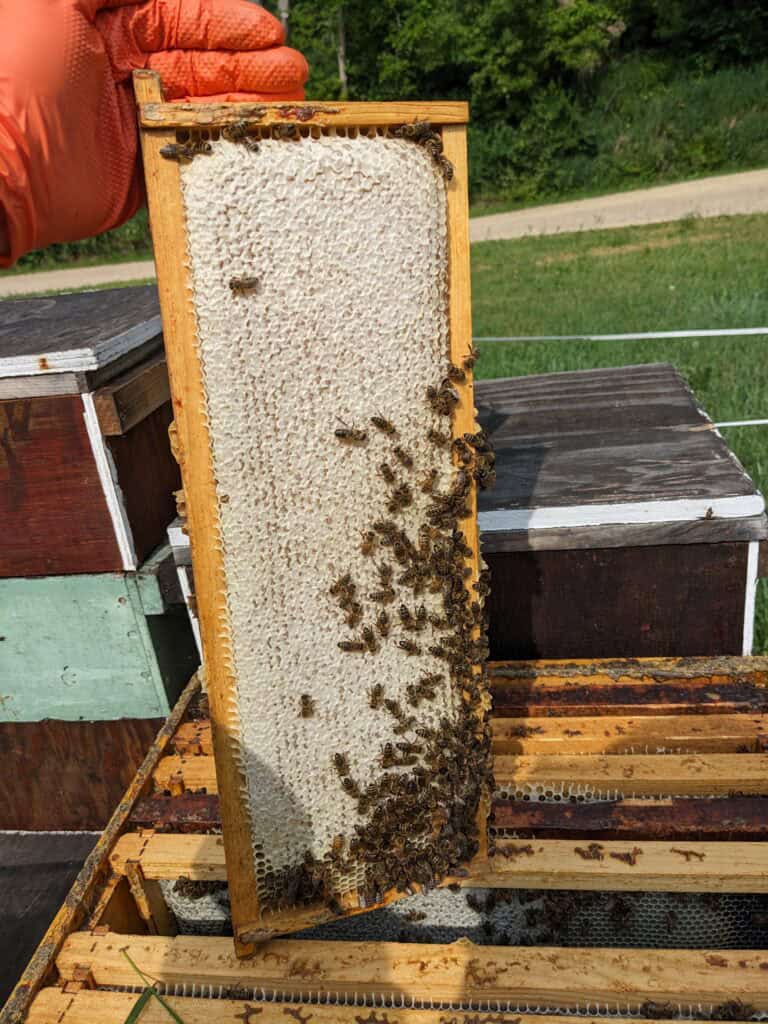
Another benefit, Schank said, is cooking and baking with it – needing less honey than you would need sugar.
He said it also helps baked goods retain moisture and stay softer longer.
Furthermore, Schank said purchasing unfiltered honey produced by local hives provides health benefits to consumers and can even strengthen immune systems against allergies caused by local pollen.
Managed colonies versus wild colonies
Schank said bees themselves are not disappearing as much as the attitude and use of bees is changing.
Though people may not see wild bees like they used to because the number of managed colonies is rising versus wild colonies, Schank said this is driven by the demand for the food production and ingredient side of it.
Overall, Schank said the number of managed colonies in the U.S. has remained pretty stable, the difference being where they are managed.
“Years ago, everyone used to have a couple of hives because that was their sweetener source,” she said. “Whereas now, keeping bees is kind of a dying [activity].”
Hobby hives – consisting of one to two hives in a backyard – Schank said, are making a slight comeback, but those trying to make a living or be profitable keeping bees are among a select few, just like any other agricultural endeavor.
Schank said honey bee colonies tend to stake out an area and “run” the area – though this isn’t to say they are territorial, so much as they knowingly reduce competition for the food sources around.
Wild honey bees, he said, will give themselves between a half-mile to a mile for this reason.
Schank said he keeps his bees two to three miles apart, noting that bees will fly up to a five-mile radius if they have to.
Generally speaking, after four miles, Schank said they’re not gaining any ground, considering the energy it takes them to get that far and back.
Western Wisconsin, he said, offers a prime landscape for bees.
From early spring when the maple starts blooming, to late fall and even beyond Halloween when the asters are blooming, Schank said the bees are working.
“They can take the cold and they’ll just keep producing,” he said. “They’re hardy little creatures.”
Buzzing ahead
Schank said two main aspects of Lucky Frank Farms set it apart from larger production facilities – its soft treatment to control mites without using chemicals and that they bottle their own honey.
Many of the larger productions, he said, will sell their honey off to a packing house.
Lucky Frank Farms’ personal touch with customers, Schank said, also sets them apart.
This, he said, allows customers to get to know their local producers, ask questions and, most importantly, build trust.
“When you’re buying from the grocery store, you don’t really know who’s producing your honey,” he said. “You don’t know what the packaging plant is blending in, because they do blend honey.”
Schank said Lucky Frank Farms’ products consist of 100% raw and unfiltered honey – providing consumers the full benefit of bees’ hard work.
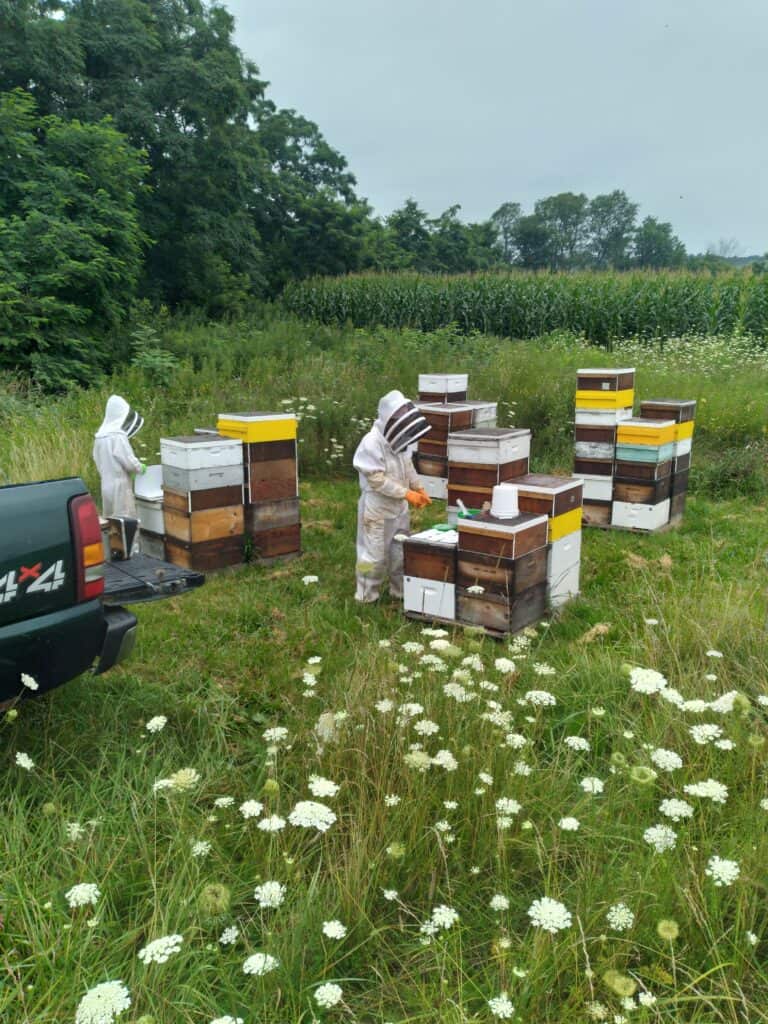
The community, he said, has been wonderful – with many helping him out with advice, equipment and even physical labor when he needs it.
Lucky Frank Farms, Schank said, wouldn’t be anywhere if it weren’t for the people in the community buying their products.
Bee-ing a business owner
Because he grew up around agriculture – namely, milking cows as part of the family lineage – Schank said being a business owner has always been on his mind.
Though he milked cows for a while, he said he was looking for something else to go into that had growth potential.
That opportunity came in the form of bees – a business he said has grown more than he expected in the last 12 years.
Schank said the combination of the healthy eating movement and the COVID-19 pandemic contributed to Lucky Frank Farms’ growth.
“I think [COVID] forced people to cook at home a little more, so [they] started using more natural stuff, like honey,” he said.
Though Lucky Frank Farms is currently a part-time venture, Schank said the plan is to grow the business into a full-time operation.
Over the years, Schank said he has learned a lot of lessons on his bee-farming journey – with the biggest one being “with bees you need to be punctual.”
With a free-flying insect, he said, one might think an open schedule would suffice, “but when [bees] need attention, they need it right away.”
Schank said bees can be as unpredictable as the weather, but at the same time have a general outline of how the year’s going to go.
One of Lucky Frank Farms’ larger hurdles, Schank said, is preventing swarming – a natural process wherein the queen and half the bees will leave the hive, and form a new colony, and the other half who stayed behind will raise a new queen.
He said they try to prevent this from happening, because if it does, it significantly affects the honey output for the year.
For more on Lucky Frank Farms – including a full list of products – visit luckyfrankfarms.com.
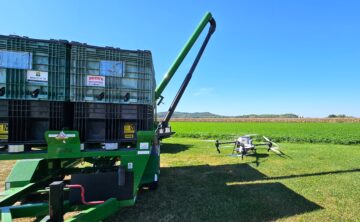 Lift off: American Drone aims to transform farming industry
Lift off: American Drone aims to transform farming industry ‘Reclaiming’ Grand Avenue through retail
‘Reclaiming’ Grand Avenue through retail


